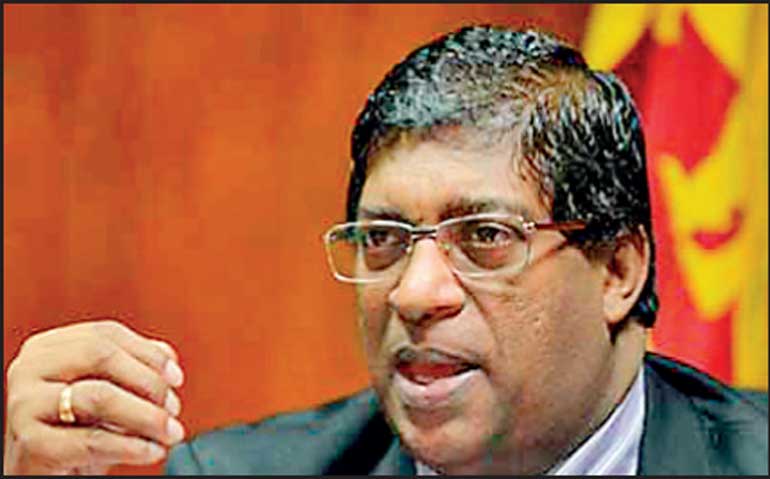Friday Feb 13, 2026
Friday Feb 13, 2026
Saturday, 17 February 2024 00:24 - - {{hitsCtrl.values.hits}}

Former Finance Minister Ravi Karunanayake
The Government has made major strides towards transforming the economy while making growth more inclusive during the past 19 months as it cannot afford another economic crisis of such magnitude as that in 2022.
But, much remains to be done to create a better future for all Sri Lankans, former Finance Minister Ravi Karunanayake said adding that a unique opportunity is now open to implement permanent structural reforms that may be difficult under normal circumstances.
Sri Lanka is a highly indebted nation, with public debt far exceeding the size of the economy. It is essential to finalise external debt restructuring soon to restore debt sustainability and boost confidence.
This needs to be supplemented by fiscal consolidation, including enhancing revenue and investment, pruning unnecessary public expenditure and improving the governance of public finances, he added.
President Ranil Wickremesinghe’s administration is determined to enact necessary Acts and introduce statutory laws including the Economic Transformation Act, foreign investment law, and SOE legislation, etc thereby creating conditions for investment and trade, incentivising exports, and integrating into global value chains, he said.
Karunanayake said the Government has to promulgate a public services delivery act in addition to all proposed legations in the pipeline that guarantee time bound delivery of services for various public services rendered by officials.
It should make provisions for punishing corrupt public servants deficient in providing the service stipulated under the statute while protecting honest officials for their prompt decision making for the benefit of the people and the country.
The Right to Service legislation is meant to reduce corruption among Government officials and increase transparency and public accountability, he pointed out.
The lack of access to information and long bureaucratic processes created opportunities for errant public officials to demand bribes and intermediaries to take advantage of the citizens.
Some high officials are sitting on public or private investment projects without taking a decision thereby depriving the country of the much needed foreign investment, he claimed.
There would be retraction in investment incentives if they failed to adhere to transparent rules, he opined
However, Karunanayake noted that sweeping tax holidays running up to 20 to 25 years given under the Strategic Development Project (SDP) Act have been suspended until the structures and processes are in place to evaluate the effectiveness of offered incentives.
Explicit criteria are to be established to evaluate investment, and in the long term replace it with a new investment law, he revealed.
Sri Lanka has corporate tax at 30 % after aggressive macro-economic policy involving rate and tax cuts that made the country bankrupt, compared to lower rates in East Asian nations that have full or greater monetary stability than that provided by Sri Lanka’s Central Bank.
The former finance minister emphasised that it is essential to reduce bank lending rates now running up to a new high of 15-16 % as many companies depend on credit financing.
More than the corporate income tax of 30 %, the higher cost of setting up a business venture in Sri Lanka due to import duties and para tariffs is a deterrent to investors, he pointed out.
To encourage investors, the Government will be liberalising trade, eliminating import restrictions, and pursuing stronger regional and bilateral trade agreements, he said.
Sri Lanka imports more than it exports, so there is a net outflow of money but the debt associated with the creation of that lost money remains, he said pointing out that the country’s entire economy is threatened
However, if the country exports more than it imports, there would be a net gain of additional debt-free money within the national economy, he explained.